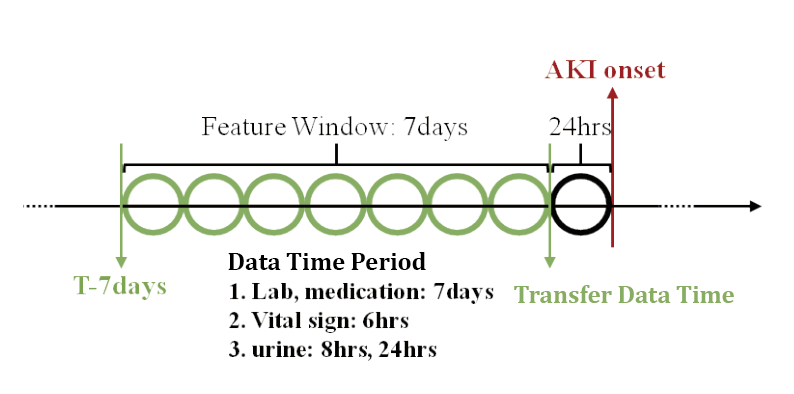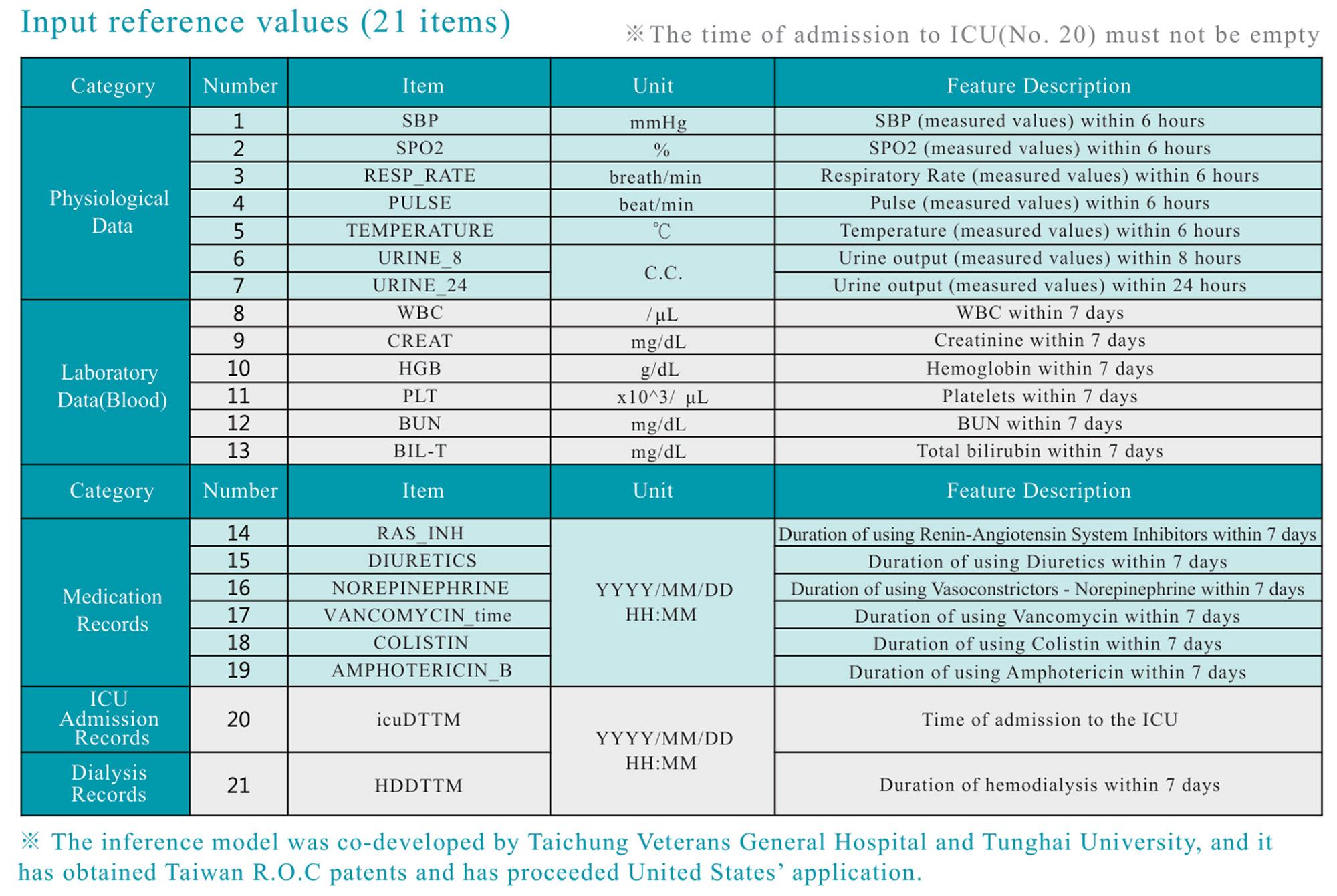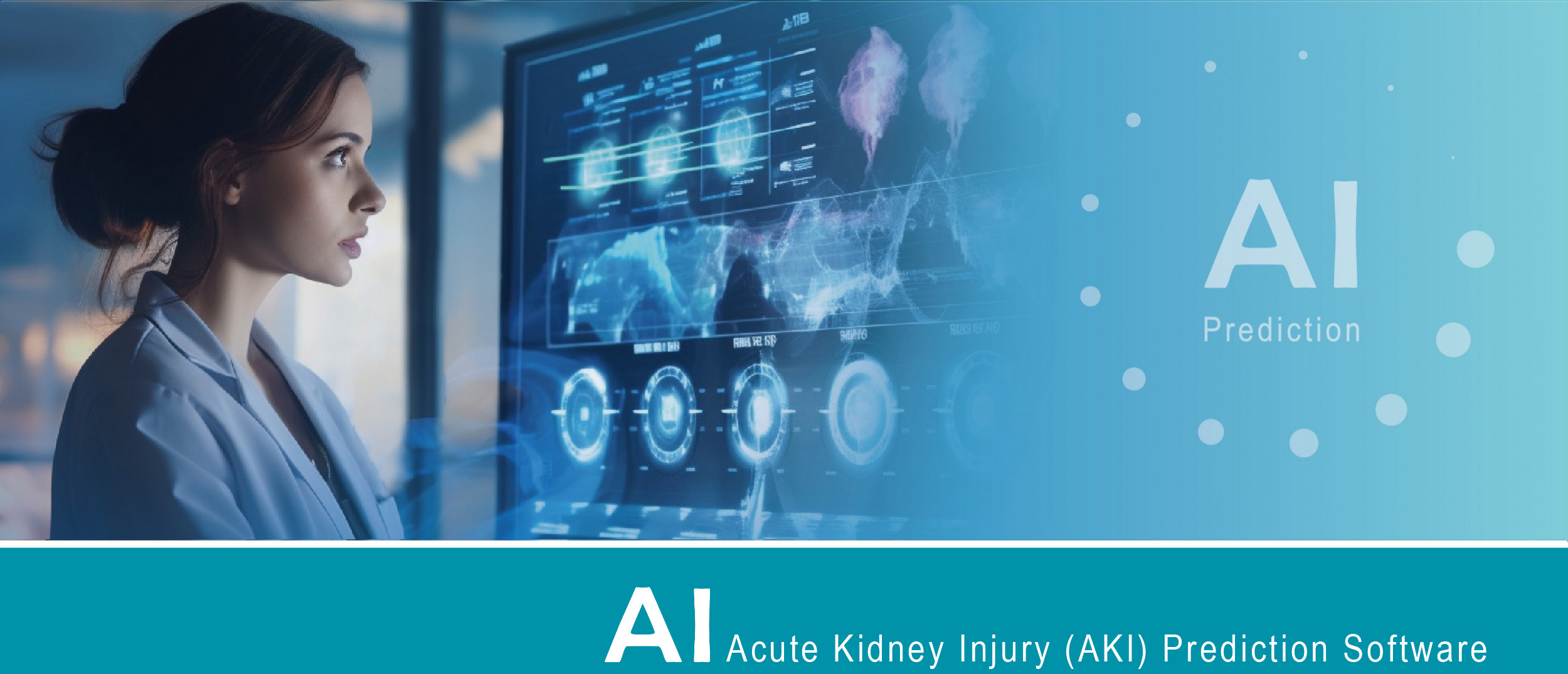Acute Kidney Injury (AKI) Prediction Software AI
Clinical difficulties
- Research shows that within 7 days after the occurrence of AKI, only 29% of patients have complete recovery of renal function, 12% will continue to deteriorate in renal function, and only 26% have a glomerular filtration rate that returns to 50% of the basic value upon discharge.
- The incidence of acute renal failure among patients in ICU is 30-40%, with up to 50% of patients requiring hemodialysis. This is accompanied not only by high medical expenses but also by a mortality rate of 50-80%.
Targets
- Early diagnose with AKI and provide appropriate treatment.
Product Features
- Machine learning algorithms provides AKI probability value of the patient after 24 hours.
- Assist medical staff in the risk evaluation of AKI and provide care reference for high-risk patients.
- Early diagnosis and intervention to reduce the influence of AKI and increase the possibility of renal function recovery.
Indications for Use

- Age ≥ 20 years in ICU
- Provide medical staff the AKI probability value of the patient after 24 hours.
- Adopt the ranking of feature weight values prediction mode to assist medical staff in the risk of AKI diagnosis.
- Focus on high-risk patients to provide care reference.
- The risk value is the probability of an occurrence, not absolutely the same as the actual occurrence.
TFDA Medical Device License: 008112
Advice from Medical Authorities and Experts
- Lots of patients in ICU suffered from AKI, which not only increases mortality, but also requires long-term hemodialysis during hospitalization and after discharge. This is different from usual practical problems and is undoubtedly an important task that the renal medicine and critical care medicine communities must face and solve together.
Taiwan Society of Nephrology Chairman Shang-Jyh Hwang - Patients with acute kidney injury (AKI) are at a high risk of developing chronic kidney disease and end-stage renal disease in the future. Even if these patients are discharged from the ICU or are weaning off hemodialysis, they need to cooperate with nephrologists for long-term follow-up and treatment to prevent deterioration into chronic kidney disease and end-stage renal disease.
Taiwan Society of Critical Care Medicine Chairman Juey-Jen Hwang - The condition of patients with AKI is complex and changes rapidly. Knowing the timing of treatment is a great challenge for nephrologists and critical care physicians. How to diagnose in early stage of AKI, provide appropriate treatment to shorten the process of the disease, and accelerate the recovery of renal function to reduce mortality are the goals of everyone.
Taiwan Society of Emergency and Critical Care Medicine Chairman Wei-Mou Tsai - Patients who have suffered from AKI will have greatly increased the risk of developing chronic kidney disease and end-stage renal disease in the future. Poor long-term prognosis will have huge impact on the health and medical resources of Taiwanese. Therefore, how to prevent AKI and early detection of kidney injury with appropriate interventions are issues that require attention and solutions.
Taichung Veterans General Hospital Division of Nephrology Director Der-Cherng Tarng
( Source : 2020 Taiwan KDIGO Controversies Conference on Acute Kidney Injury)

